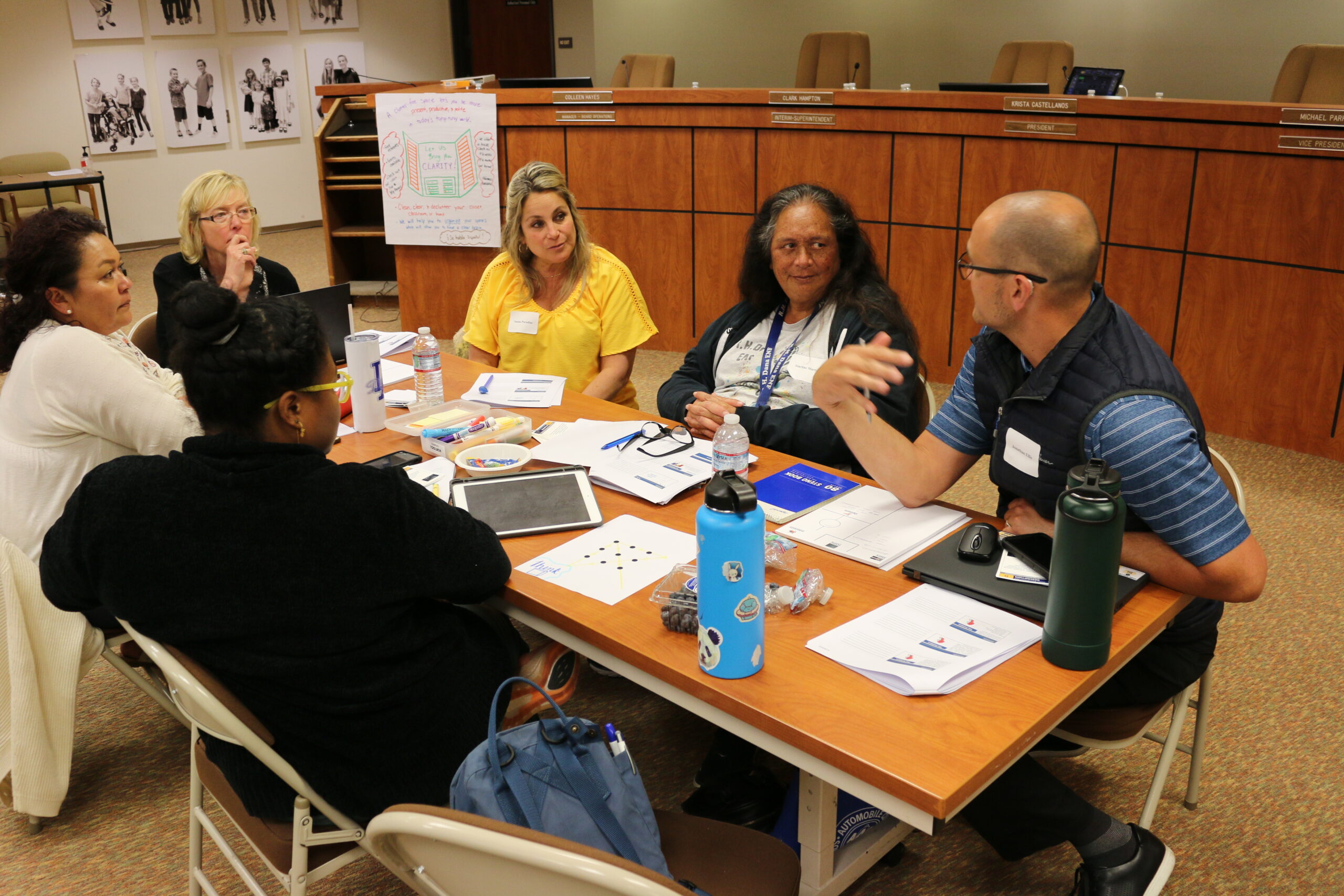Collaboration is a key attribute of a successful organization. In a school district, with a variety of departments, roles and structures in place, collaboration is vital to efficient and productive operations. WIth that idea in mind, CUSD, CSEA and CUEA came together to develop the CAPE Training.
CAPE (Classified, Certificated & Administration in Partnership for Excellence) is a team-building and problem solving framework that aligns the three major employment areas of the District.
The training has three main goals:
- Learn a proven problem solving strategy
- Solve problems through a culture of collaboration
- Have a positive impact on student learning
Each school site will take part in CAPE training by the end of the 2023-2024 school year, and will create its own problem solving team on campus that include representatives from the Classified, Certificated and Administrative employees. These teams will engage in regularly scheduled problem solving sessions to address any site based challenges. During these meetings, they commit to, and model, a culture of collaboration and share in decision making to solve problems using sometimes unconventional or creative ideas.
Interest Based Approach to Problem Solving
A key tenet in the CAPE Training is the Interest Based Approach to Problem Solving, a non-adversarial means of collaboratively working together in an effort to achieve mutually beneficial outcomes in any given situation. The system includes five principles participants should consider and seven elements to work through when solving a problem with others.
Interest Based Approach Five Principles
- Be a participant in the process
- Focus on issues, not personalities
- Listen to understand, not to judge
- See the issue from another’s perspective
- Use consensus to decide
Interested Based Approach Seven Elements
- Story
- Interests
- Options
- Evaluate
- Commit
- Implement
- Assess
Putting the system in action
On April 20, representatives from Hidden Hills, Kinoshita, Malcolm, Palisades, San Juan and Viejo elementary schools convened in the CUSD Board Room to experience CAPE Training from Dr. Bob Presby, CUSD Associate Superintendent of HR Services, Joy Schnapper, CUEA President, and Ronda Walen, CSEA President. Each school had its principal and at least one representative of the Classified and Certificated staff on hand.
“Collaboration is the single most contributing factor tied to student achievement,” Scnapper said. “CAPE intentionally sets aside time to gather input from all stakeholders.”
The groups learned about the methodology and history behind CAPE Training before engaging in several exercises. In the first exercise, teams had to create a business that utilized the strengths and talents of each member of the team, outlining the key functions and demographics. The teams then went on a gallery walk together, hearing the pitches from the others. The exercise was designed to empower team members to express their strengths and interests, and to encourage listening and collaborative thinking.
In the second exercise, each team selected a real life challenge its school was facing and work to solve the problem using the Interest Based Approach. By examining a real problem, such as school communications or campus cleanliness, each different employee group could present its perspective. One school discussed the importance of all adults on campus being treated with equal respect by students, regardless of position. Another school tackled the issue of absenteeism, how it affected different areas of the school and how to promote good attendance.
“Approaching problem solving in this way makes everyone in the school a part of the process,” said Jacqueline Campbell, Kinoshita principal. “We don’t always have all of the different groups of employees meet together, so this style of collaboration will help us set expectations and improve communication. It makes problem solving more organic rather than systematic, and ensures every staff member has a role in benefitting every child.”















